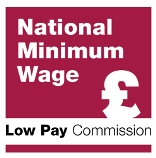The Low Pay Commission (LPC) is the independent body which advises the Government on the levels of the National Living Wage (NLW) and National Minimum Wage (NMW). Each year the LPC consult the public to understand how the NLW or NMW rates will impact employers and employees. Youth Employment UK responded with a youth voice perspective that you can read below.
Download the response here
In our response, we use qualitative data from a questionnaire with our Youth Ambassadors and from roundtables with Youth Voice Forum Participants. We also used quantitative data from our Youth Voice Census 2020 and preliminary findings from the Youth Voice Census 2021.
We consider the impacts of the NLW and NMW increases in April (2021) on young people, the lowering of the threshold of the NLW to 23 in April (2021) and the timeline to reduce the threshold to 21 by 2024.
- Young people told us they welcomed the wage increase as a result of increasing the NLW/NMW but many are concerned about their rising cost of living, the impact of Covid-19 on their work experience and accessing opportunities, and the geographical inequalities of guidance and support.
- The NMW/NLW did not provide the young people we spoke with a disposable income, but was useful in helping towards the cost of their groceries.
- Young people said they would like to see a higher NLW/NMW and for the age threshold for the NLW to be reduced to 21 before the planned 2024.
Our response highlights that young people are likely to work in sectors that have been most affected by the pandemic and have been disproportionately impacted in the labour market due to Covid-19. The Government response in the Plan for Jobs, particularly Apprenticeships and Kickstart, rely on the NLW/NMW as the rates of pay and will be important in building back better. This is why setting a NLW/NMW in the interests of young people has to be considered on par with the impact this will have on employers.





